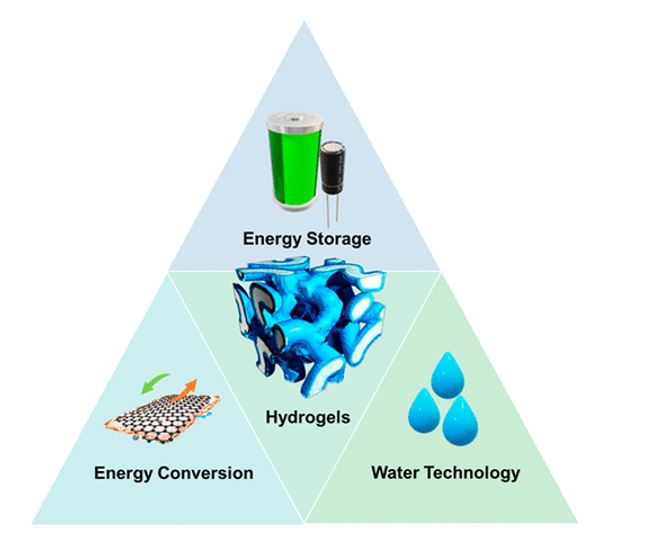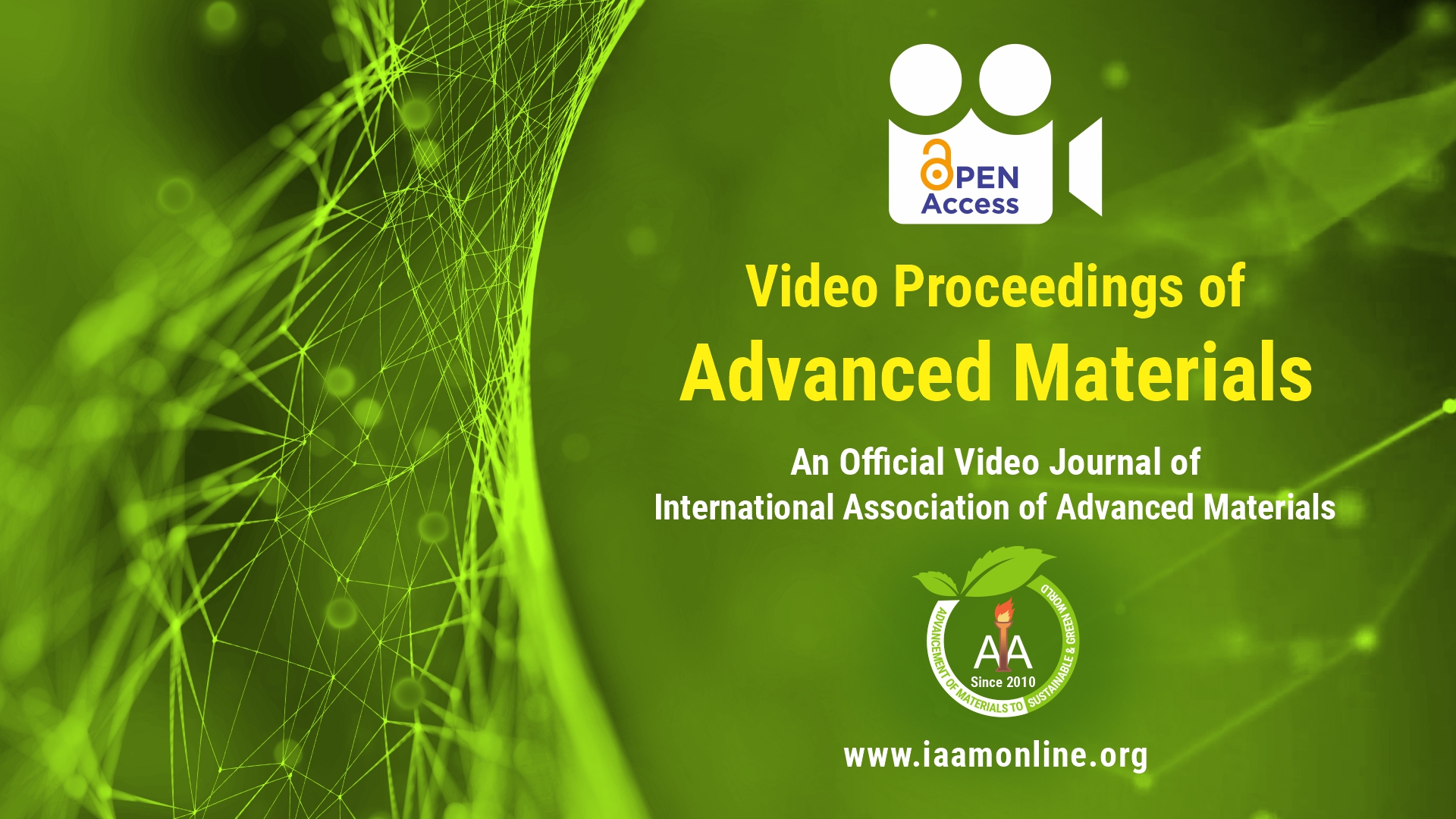Video Article Open Access
Multifunctional Hydrogels for Sustainable Energy and Environment
Guihua Yu
Materials Science and Engineering, Texas Materials Institute, University of Texas at Austin, Austin, Texas 78712, USA
Vid. Proc. Adv. Mater., Volume 2, Article ID 2105181 (2021)
DOI: 10.5185/vpoam.2021.05181
Publication Date (Web): 05 Aug 2021
Copyright © IAAM
Graphical Abstract

Abstract
Hydrogels are highly crosslinked networks of polymers saturated with water. Conventional hydrogels have found significant applications in biomedical fields such as tissue engineering and drug delivery, owing to their stimuli responsiveness and biocompatibility. We have recently developed a novel class of ‘energy hydrogels’ based on versatile gelation chemistries with highly tunable molecular building blocks and rational integration with micro-/nano-structured materials, to achieve a number of appealing new functionalities that enable them as an emerging material platform for advanced energy and environmental technologies.
These nano-architected hydrogels as organic building blocks offer an array of advantageous features such as nanostructured conducting framework, exceptional electrochemical activity to store and transport ions, and synthetically tunable polymer-water interactions. Recent advances on these nanostructured hydrogels-enabled energy and environmental applications will be showcased including high-energy lithium-ion batteries and supercapacitors, electrocatalysts, and solar-driven water desalination and atmospheric water harvesting. In this talk, I will illustrate how to design ‘structure-derived multifunctionality’ of this special class of materials and to transform the current development of hydrogel materials into sustainable energy and water technologies.
Keywords
Hydrogel; energy storage; electrocatalysis; water purification; water harvesting.
Biography
Guihua Yu is a Professor of Materials Science and Mechanical Engineering at University of Texas at Austin. He received Ph.D. from Harvard University followed by postdoc at Stanford University. His research has focused on synthesis and self-assembly of functional organic and hybrid organic-inorganic nanomaterials, and fundamental understanding of their chemical/physical properties for advanced energy and environmental technologies. Yu has published over 200 scientific papers in many prominent journals such as Science, Nature, Nature Reviews Materials, Nature Materials, Nature Nanotechnology, with total citations ~38,000 times and H-index ~102. Yu is an elected fellow of Royal Society of Chemistry (FRSC) and Institute of Physics (FInstP), and ranked as a top Highly Cited Researcher in Materials Science by Web of Science in recent years. He is the recipient of a significant number of prestigious awards/honors, to name a few: the O’Donnell Award in Engineering by The Academy of Medicine, Engineering, and Science of Texas (TAMEST), TMS Brimacombe Medalist Award, Polymer International-IUPAC Award for Creativity in Applied Polymer Science/Technology, US Department of Energy’s Early Career Award, ACS ENFL Emerging Researcher Award, Caltech’s Resnick Young Investigator, Camille Dreyfus Teacher-Scholar Award, Sloan Research Fellowship, MIT Technology Review ‘35 Top Innovators Under 35’, IUPAC Prize for Young Chemists. Yu currently serves as Associate Editor of ACS Materials Letters (a new flagship materials science journal by American Chemical Society), and is in Advisory/Editorial Board of over 20 prestigious international journals such as Chem (Cell Press), Chem. Soc. Rev. (RSC), ACS Central Science, Chemistry of Materials, Nano Research (Springer), Energy & Environmental Materials (Wiley), Energy Storage Materials (Elsevier).
Video Proceedings of Advanced Materials

Upcoming Congress



